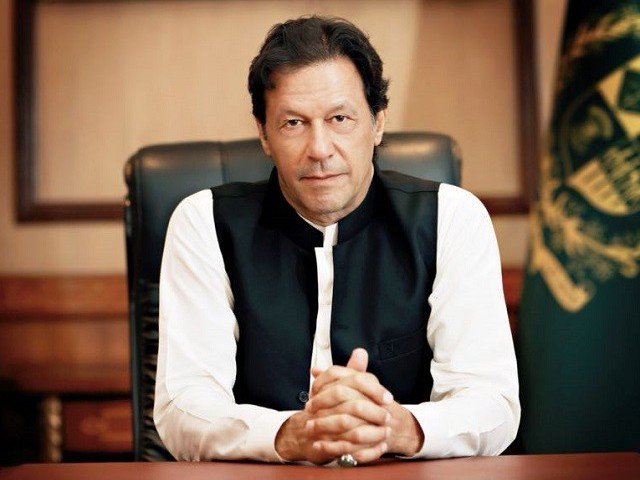
Former cricket team captain Imran Khan was sworn in as captain of the country's legislative branch in August, and thus began the dawn of his Naya Pakistan. Unfortunately, things have not gone as smoothly as he would have liked, as the PTI quickly managed to take a sputtering economy inherited from the PML-N government and turn it into an inflation and devaluation-plagued disaster, mostly due to indecisiveness at the policy-making level.
But the newsworthiness of 2018 did not start in July, but just hours into the new year, as US president Donald Trump on January 2 cancelled all military aid to Pakistan, citing his perception that Pakistan needed to "do more" to help the US in the war on terror. That story soon widened into a dramatic reduction of US aid to Pakistan across the board, and ties arguably hitting a lower point than they did even after the Bin Laden raid in 2011.
The same month, the rape and murder of little Zainab in Kasur shocked the country. The ensuing number of child rape cases reported forced a once-taboo subject to the fore. The impetus was provided for rape victims to start getting justice, and it was swift, as the convicted attackers in multiple such cases were given the noose, or life imprisonment, within a few weeks of their arrests.
For Pakistan, 2018 marked by economic instability
Around the same time, outrage over a 'fake encounter' in Karachi ballooned to become the catalyst for what is now known as the Pashtun Tahaffuz Movement. The attempted cover-up of Naqeebullah Mehsud and his companions' killings led to the fall and ensuing saga around former SSP Rao Anwar's arrest and was used to illustrate the conditions that many people affected by the war on terror in the erstwhile Fata regions must still deal with.
The Supreme Court was involved in both of these cases and many more, as a new era of judicial activism culminated in the superior judiciary's ongoing efforts to crowdfund new dams. Along the way, inspections of hospitals and other public sector facilities became commonplace, and new light was shone on the level of decay of many public utilities.
Lower courts, meanwhile, had to deal with the Sharif family's corruption cases, as former premier Nawaz Sharif and various other relatives were jailed, then bailed, then jailed again in separate cases.
By the end of the year, it began seeming ever more likely that a former president may also get caught up in corruption cases. For Asif Zardari, the quicksand is a massive money laundering case.
Along the way, the Senate elected its new class in March. A controversial lead-in to the election left PML-N 'candidates' to run as independents, and saw chairmanship of the Senate move from senior statesman Raza Rabbani to a complete wildcard, first-time senator Sadiq Sanjrani.
With the new Senate in place, parliament was also able to pass a few significant laws, including one to protect the rights of transgender persons and another merging Fata with K-P.
While technically unrelated, in both cases, long-marginalised groups were finally being given many of the social and political rights that they had been denied for over 70 years.
Terrorism also made a return, with the elections coinciding with a number of deadly bombings. Haroon Bilour of the ANP was martyred along with a dozen others in a bombing in Peshawar in early July. A few days later, at least 128 people were martyred in an attack in Mastung, including BAP leader Siraj Raisani. Islamic State claimed responsibility for the Mastung attack.
Terror incidents continued to decline in 2018
Later in the year, the attack on the Chinese Consulate in Karachi and a string of deadly attacks in Balochistan and K-P served as reminders that terrorism is still a threat.
September saw another symbolic dawn, as the PTI were able to get party loyalist Arif Alvi elected president of Pakistan. Days later, Kulsoom Nawaz passed away after a prolonged illness. While the former first lady may not have the same individual contributions to Pakistan as Asma Jehangir – who passed away in February – there is one thing that will always tie them together. For their own separate reasons, they both fearlessly went toe-to-toe with dictators, often while the 'brave men' who would later claim to have done so were actually cowering far away.
October and November saw the SC acquit Asia Bibi, the Christian farmworker who had been convicted of blasphemy by a lower court. The acquittal was followed by a series of ugly protests by the TLP, which, emboldened by the lack of reprisal at its protests the previous year, went a bridge too far and began threatening the judiciary, military, and political leadership of the country. Even though the PTI lent some support to the TLP's 2017 protests, the increasingly heated rhetoric led to a number of party leaders being arrested or taken into 'protective custody'.
Then, as the year ended, the opening of the Kartarpur crossing led to the short-lived possibility of a peace overture, which was rebuffed by an electioneering Narendra Modi-led BJP in India, and an uncomfortable walk back from the US, as Trump and his advisers realised the importance of Pakistan for peacemaking in Afghanistan.





1732617223-0/Untitled-design-(69)1732617223-0-270x192.webp)

1732622842-0/Express-Tribune-(9)1732622842-0-270x192.webp)









COMMENTS
Comments are moderated and generally will be posted if they are on-topic and not abusive.
For more information, please see our Comments FAQ